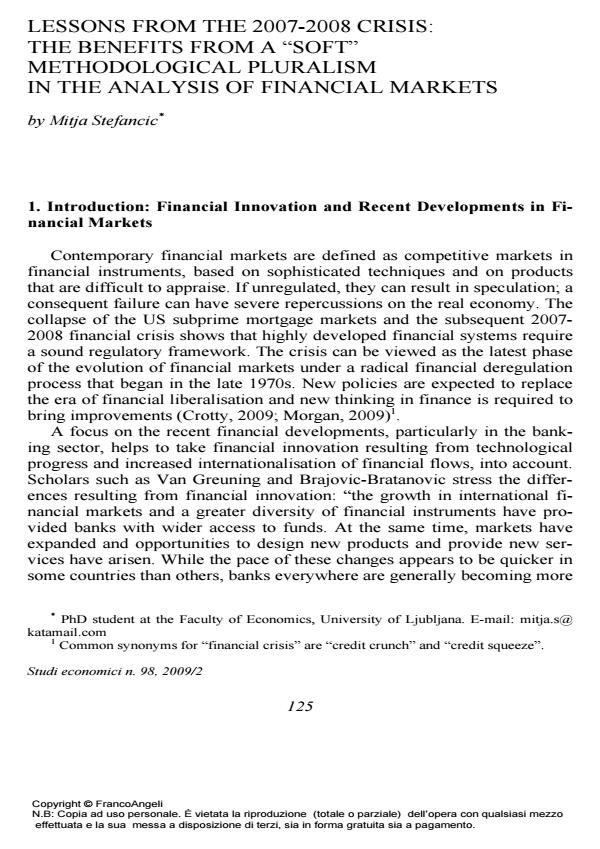Lessons from the 2007-2008 Crisis: The Benefits from a "Soft" Methodological Pluralism in the Analysis of Financial Markets
Titolo Rivista STUDI ECONOMICI
Autori/Curatori Mitja Stefancic
Anno di pubblicazione 2010 Fascicolo 2009/98
Lingua Inglese Numero pagine 10 P. 125-134 Dimensione file 432 KB
DOI 10.3280/STE2009-098005
Il DOI è il codice a barre della proprietà intellettuale: per saperne di più
clicca qui
Qui sotto puoi vedere in anteprima la prima pagina di questo articolo.
Se questo articolo ti interessa, lo puoi acquistare (e scaricare in formato pdf) seguendo le facili indicazioni per acquistare il download credit. Acquista Download Credits per scaricare questo Articolo in formato PDF

FrancoAngeli è membro della Publishers International Linking Association, Inc (PILA), associazione indipendente e non profit per facilitare (attraverso i servizi tecnologici implementati da CrossRef.org) l’accesso degli studiosi ai contenuti digitali nelle pubblicazioni professionali e scientifiche.
The article argues that contemporary financial markets and financial innovation can be analysed from a number of perspectives and theoretical standpoints. The 2007-2008 financial crisis stimulates an evaluation of the importance of interdisciplinary approaches in the analysis of a remarkably complex financial system. The article provides an argument in support of the application of a "soft pluralism" in policy related to financial regulation. Particularly softer versions of pluralist methodologies enable financial analysts and professional practitioners to work on the new regulation of financial markets, and to implement the design of a dynamic and fair capitalism. Therefore, soft pluralism is relevant for providing a clear definition of the bases for sustainable wealth creation and the maximisation of the benefits from globalisation through a plurality of perspectives.
Jel codes:B41, B50, G01, G10, G18
Mitja Stefancic, Lessons from the 2007-2008 Crisis: The Benefits from a "Soft" Methodological Pluralism in the Analysis of Financial Markets in "STUDI ECONOMICI " 98/2009, pp 125-134, DOI: 10.3280/STE2009-098005